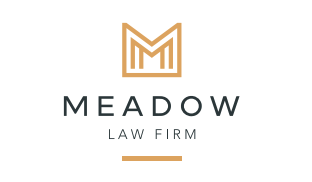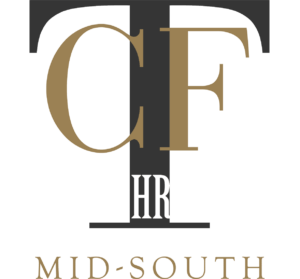Susan Barfield (0:00:05) – Hello, everyone. Thank you for joining another episode of the Leverage Report. Today is Tort Talk Thursday, and I am here with Joe Fantini from Rosen Injury Lawyers. And we are going to be talking about all things mass tort and the latest and greatest updates and mass tort news because Joe knows everything. So Joe, why don’t you give a quick little snippet about your background?
Joe Fantini (0:00:33) – Yeah, thanks for having me on here, Susan. Really excited to talk about all things mass tort. It kind of consumes my life. So I’m over at Rosen Injury Lawyers. We’re a national mass tort firm, and we’re involved in pretty much any of the mass tort sets going on now. So before working at Rosen, I worked at another plaintiffs firm here in Philadelphia focusing on mass torts. Before that, I was on the other side, on the defense side. Started off my career at a national insurance defense firm where I worked for a couple years. And then even prior to that, when I was in law school, I clerked in Philadelphia court of Common Pleas at our mass tort court there. So I’ve been doing it for a long time and have a little bit of a unique perspective from the court plain offend defense that I’m happy to share here today.
Susan B. (0:01:28) – Yeah, fantastic. And so every Thursday, Joe and I are going to get together and Joe’s going to share what’s happened, whether it’s been the week before or what’s kind of the latest and greatest in the news. And so let’s start off today, Joe, talking a little bit about the Boy Scout stake. Tell us what you know there.
Joe F. (0:01:47) – Right. So this came down at the end of last week. So by way of background, everybody probably knows about the Boy Scout settlement. So there was a bankruptcy filed by Boy Scouts of America in 2020 that goes through the court. Ultimately, there’s a $2.4 billion settlement that’s reached in 2022, that goes up to appeal in March of 2023, and that gets approved. So then that kind of starts the process to work the claims through the bankruptcy court. And over 60,000 rather 80,000 participants started submitting claims. And there was even a process where you could submit an initial claim where maybe your information and records didn’t get reviewed. And there were 3000 people that already got paid up to about $8 million. But there was a deadline last week, and then a small group of about 100 abuse victims submitted to the Supreme Court to have the bankruptcy proceedings stayed because they didn’t think it was fair that non-bankrupt entities such as other local Boy Scouts of America branches or councils or individuals that organize some of the bankrupt, the Boy Scout activities would be protected by the Boy Scouts. So in another similar action, the opioids, Purdue Pharma is going through a similar type of argument before the Supreme Court, and they hold argument in December, and that was whether or not the slackers could have protection through the bankruptcy. And so Justice Alito granted the stay. There’s no deadline on that, but expect a decision to come the same time we hear from the Supreme Court on the opioid pharma purdue litigation.
Susan B. (0:03:49) – So I guess for firms that have Boy Scout cases and they haven’t quite completed the claims questionnaire, what would your recommendation be to continue working on those claims questionnaires, getting them complete so that when things reopen and the portal is ready to go, then you can submit.
Joe F. (0:04:06) – Exactly what you would recommend upon us. So I would think there’d be a little bit of time, maybe a couple of weeks, but keep working on getting the paperwork in if they want to submit through the claims process. Keep doing that.
Susan B. (0:04:21) – Awesome roundup. Roundup has been in the news lately, especially with the large verdicts. Exciting to see from Klein and Specter and Arnold Itkin. Tell us about the ongoing trials and what’s ahead of us.
Joe F. (0:04:36) – Roundup. So I’ve been a big fan of roundup here for years, like everybody else here in Philadelphia. Like you mentioned, Klein and Specter got some pretty remarkable verdicts lately and swung the favor back to plaintiff’s side here after we had a series of losses last year. So we’re on a little bit of a run here. The plaintiffs, the momentums keep going. Now, we had a court in Delaware. The first trial in Delaware started about two weeks ago, and then earlier this week two other trials started and another one set to get underway. So that’s in Arkansas, a new venue, California, where we’ve had cases, and then again in Philadelphia. So, four trials undergoing in the month of February. I think Bayer is in trouble here. So I expect verdicts then to February 1 week or two of March. I don’t see how we don’t get three out of four of them. So unfortunately for Bayer, it doesn’t stop there. There’s more trials scheduled. There’s about another dozen set up before mid year here. So I think there’ll be some momentum towards some sort of global settlements or inventory settlements picking up in the second and third.
Susan B. (0:05:53) – These are, that’s exciting for sure. Michigan repeals the pharmaceutical immunity. Tell us a little bit about that.
Joe F. (0:06:02) – Yeah, finally this happened. Michigan was the only state out there, as you know, that had pretty much blanket immunity for pharmaceutical companies. So what that meant for us is we couldn’t represent plaintiffs in that state, plaintiffs that took the medications there, or sometimes plaintiffs that lived there. And fortunately, on February 13, they repealed this law. So now we can bring claims against these companies in Michigan. So you’ll see an uptick in opioid litigation. Ozempic, we can represent some clients there, but to remember, it’s not retroactive. So only for people who injuries occurred after February 13, 2024. But that was great to see. Like I said, it was the only state that had this type of law on the books. So now that’s gone, and those people in Michigan can get help as well.
Susan B. (0:06:55) – Joe, you mentioned Ozempic. Any updates or news you can share as it relates to some of the criteria and what we can expect in the coming months on Ozempic? I know it’s the buzz, and we’re hearing a lot about it.
Joe F. (0:07:08) – Right. So my mass toward for 2024 is Ozempic expecting more than 10,000 cases. It just got consolidated in front of judge Pratter here in the eastern District of Pennsylvania, downtown Philadelphia, a great venue. We’re still waiting for the initial case management order to be entered. I checked earlier today. I didn’t see it. But once that gets entered, we’ll have about six months of leadership getting in place, going over discovery, coordination, electronic documents, things of that nature. And they’ll really get kicked off kind of in the second half of the year. But in terms of criteria, you’re looking for people that use the medications, brand medications, of course, for more than a 30 day time period from initial uses until the injury. And so we’re looking at some of these kind of gastrointestinal injuries. And the key piece of the criteria is you really want somebody that was hospitalized. So we’ve spoken with a lot of people here who had problems and complications, but you want to have people that had the problems at least 30 days afterwards, had a serious gastrointestinal injury 30 days later, some sort of hospitalization and treatment. Some of the exclusionary factors are going to be people that had prior lap bands or gastric procedures that could exclude them because that could be the cause of their problem. So this mass torch is definitely going to get a lot of excitement coming up, and I think it will probably be one of the biggest ones by the end of this year.
Susan B. (0:08:52) – Yeah, we have lots of groups and firms, attorneys getting into ozempic and so excited about that one. What is going on with baby food?
Joe F. (0:09:03) – Yeah. So this is another one that I think will generate a lot of buz here throughout the year. But basically we have a petition file to consolidate these baby food cases in an MDL. If you remember back in 2021, there was a previous petition that got denied by the JPML, which is unique because typically we see about 70% of these petitions get granted. But now we have eleven plaintiffs, there’s a number of different firms, there’s representation that there’s over 3500 signed plaintiffs. And what we’re trying to do, the plaintiffs are moving for consolidation. It would be with various manufacturers, kind of like we just saw in Ozempic or the PPI litigation. And in these cases you’re looking for individuals that used the baby food for more than twelve months. They were diagnosed with either autism or ADHD after two years of age. There’s exclusionary factors for family history of those type of injuries or the age of the parents. So the hearing is set for March 28. I think this one’s going to get granted. I think in the beginning of April we’ll have a new MDL which will have a lot of excitement. Also noteworthy, there’s a case that’s pretty far along down in district court in Louisiana. There’s a trial actually scheduled for the summer here. So I think this is going to be another big one. Probably not as big as Ozempic, but several thousand cases I could see filed by the end of this year.
Susan B. (0:10:47) – This has been fantastic. Joe knows law for sure. This is great insight in just under eleven minutes. We really appreciate you Joe, taking the time to give us the updates and insights on the latest and greatest in mass torts. Tune in next week and Joe and I will be at it again talking all things mass tort for your Tort Talk Thursday. Thank you, Joe.
Joe F. (0:11:11) – Thanks Susan.




